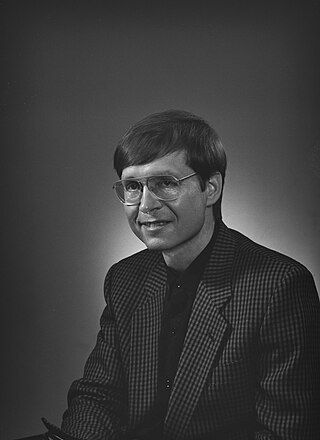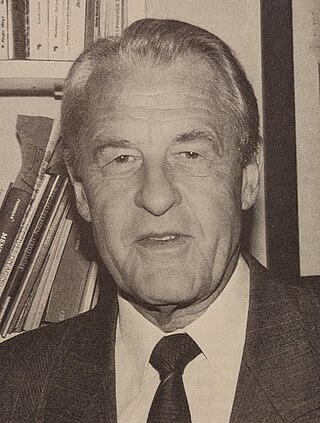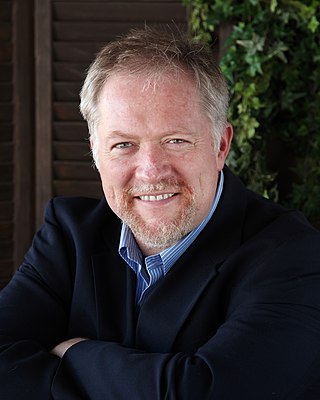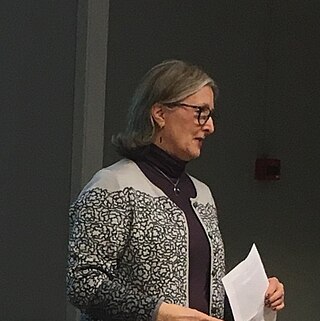Related Research Articles

The documentary hypothesis (DH) is one of the models used by biblical scholars to explain the origins and composition of the Torah. A version of the documentary hypothesis, frequently identified with the German scholar Julius Wellhausen, was almost universally accepted for most of the 20th century. It posited that the Pentateuch is a compilation of four originally independent documents: the Jahwist (J), Elohist (E), Deuteronomist (D), and Priestly (P) sources. The first of these, J, was dated to the Solomonic period. E was dated somewhat later, in the 9th century BCE, and D was dated just before the reign of King Josiah, in the 7th or 8th century BCE. Finally, P was generally dated to the time of Ezra in the 5th century BCE. The sources would have been joined together at various points in time by a series of editors or "redactors".

David and Jonathan were, according to the Hebrew Bible's Books of Samuel, heroic figures of the Kingdom of Israel, who formed a covenant, taking a mutual oath.

Simo Kaarlo Antero Parpola is a Finnish Assyriologist specializing in the Neo-Assyrian Empire and Professor emeritus of Assyriology at the University of Helsinki.
Alfred Rahlfs was a German Biblical scholar. He was a member of the history of religions school. He is known for his edition of the Septuagint published in 1935.

Rolf Rendtorff (1925–2014) was Professor of Old Testament at the University of Heidelberg from 1963 to 1990. He has written frequently on the Hebrew Bible and was notable chiefly for his contribution to the debate over the origins of the Pentateuch.

The official translation used by the state church, the Evangelical Lutheran Church of Finland, is approved by its Synod. There have been three official translations: Biblia: Se on: Coco Pyhä Ramattu Suomexi (1642), Pyhä Raamattu (1933/1938), and the current one Uusi kirkkoraamattu (1992/2007). The term kirkkoraamattu means that the edition has to be suited for service of worship and other needs of the church.
Bernard Malcolm Levinson serves as Professor of Classical and Near Eastern Studies and of Law at the University of Minnesota, where he holds the Berman Family Chair in Jewish Studies and Hebrew Bible. He is the author of Deuteronomy and the Hermeneutics of Legal Innovation, "The Right Chorale": Studies in Biblical Law and Interpretation, and Legal Revision and Religious Renewal in Ancient Israel; and is the co-editor of The Pentateuch as Torah: New Models for Understanding Its Promulgation and Acceptance. He has published extensively on biblical and ancient Near Eastern law and on the reception of biblical literature in the Second Temple period. His research interests extend to early modern intellectual history, constitutional theory, the history of interpretation, and literary approaches to biblical studies.

Martti (Martin) Rautanen was the pioneer of the Finnish Mission in Ovamboland, South West Africa.
Louis Stulman is a Professor of Religious Studies and Chair of the Religious Studies and Philosophy Department at the University of Findlay, Findlay, Ohio. He earned an M.Phil. and Ph.D. in Hebrew Bible from Drew University and has done post-doctoral work at the University of Michigan. He has served as an instructor in Hebrew at Drew University, the Gale and Harriette Ritz Professor of Old Testament at Winebrenner Theological Seminary, as well as the positions noted above at The University of Findlay.

David Johannes Trobisch is a German scholar whose work has focused on formation of the Christian Bible, ancient New Testament manuscripts and the epistles of Paul.
James K. Hoffmeier is an American Old Testament scholar, an archaeologist and an egyptologist. He was Professor of Old Testament and Ancient Near Eastern History and Archaeology at Trinity Evangelical Divinity School.

Anneli Pirjo Marjukka Aejmelaeus is professor emerita of Old Testament and Ancient Near Eastern Culture and Literature in the Faculty of Theology at the University of Helsinki, and is the vice-director of the Academy of Finland Centre of Excellence "Changes in Sacred Texts and Traditions". Before this, she held from 1991 to 2009 the position of Professor of Old Testament and Septuagint Research in the Faculty of Theology at the University of Göttingen. In addition, from 1993 to 2000, Aejmelaeus was the Director of the research institute "Septuaginta-Unternehmen" at the Göttingen Academy of Sciences and Humanities.

Jutta Maria Jokiranta is a Finnish theologian and, since 2018, a Professor in Hebrew Bible and cognate studies at the University of Helsinki. She is a former university lecturer of the Hebrew Bible at the University of Helsinki and an Academy Research Fellow of the Academy of Finland. Her area of specialization is Qumran studies and Second Temple Judaism. She is currently leader of the team in "Society and Religion in Late Second Temple Judaism" in the Academy of Finland Centre of Excellence in "Changes in Sacred Texts and Traditions". She was elected president of the International Organization for Qumran Studies (IOQS) at their July 2016 meeting in Leuven.
Raija Tellervo Sollamo is a Finnish theologian and professor emerita of Biblical Languages in the Faculty of Theology, University of Helsinki. She was the first female professor in the field of theology in Finland. Between 1998 and 2003, Sollamo was vice-rector of the University of Helsinki, thereby becoming the first female vice-rector in Finland. From 2007 to 2010, she was president of The International Organization for the Study of the Old Testament (IOSOT).
The Göttingen Faculty of Theology is the divinity school at the University of Göttingen, officially denominated the "United Theological Departments" but commonly referred to as the "Theological Faculty" . It was instituted at the foundation of the University, in 1737, along with the three other original faculties of Law, Medicine, and Philosophy. Over the centuries, the Göttingen Faculty of Theology has been home to many influential scholars and movements, including the rise of historical criticism, Ritschlianism, the History of Religions School, and Dialectical Theology. Its members were also involved in the Göttingen School of History.

Aramaic studies are scientific studies of the Aramaic languages and literature. As a specific field within Semitic studies, Aramaic studies are closely related to similar disciplines, like Hebraic studies and Arabic studies.
Hanna Tervanotko is a Finnish-born Canadian historian of religion. She is an assistant professor in the Department of Religious Studies at McMaster University in Ontario, Canada. Her research focuses on the Second Temple era and her research interests include women in antiquity, Qumran, Dead Sea Scrolls, and Jewish interpretation of scripture. She is affiliated with the Centre of Excellence "Changes in Sacred Texts and Traditions" (CSTT) at the University of Helsinki.
Kristin Mimi Lieve Leen De Troyer is an Old Testament scholar, theologian, writer and an (honorary) professor who has taught at different universities such as the University of Salzburg, the University of St Andrews, and Claremont School of Theology. She is the author of many scholarly books and articles, an editor of several academic series, and a professor and researcher of the Hebrew Bible, the Septuagint, Judaism and the Dead Sea Scrolls. Since the beginning of 2021, she serves as the Secretary of the European Academy of Sciences and Arts.
Hartmut Lehmann is a German historian of modern history who specializes in religious and social history. He is known for his research on Pietism, secularization, religion and nationalism, transatlantic studies and Martin Luther. He was the founding director of the German Historical Institute Washington DC and was a director of the Max Planck Institute for History. He is an emeritus honorary professor at Kiel University and the University of Göttingen.
Heidrun E. Mader is a German Protestant theologian and historian of early Christianity and its literature, and a professor at the University of Cologne, Germany, holding a chair of Biblical Literature and its Reception History.
References
- ↑ "Book Note | Ancient Prophecy: Near Eastern, Biblical, and Greek Perspectives". ANCIENT JEW REVIEW. Retrieved 2020-09-27.
- ↑ "Ancient Prophecy | Reading Religion". readingreligion.org. Retrieved 2020-09-27.
- ↑ Quenqua, Douglas (2012-09-14). "Turned Away, He Turned to the Bible". The New York Times. ISSN 0362-4331 . Retrieved 2020-09-27.
- ↑ Brawley, Robert L. (2001). "Reviewed Work: Homoeroticism in the Biblical World: A Historical Perspective by Martti Nissinen, Kirsi Stjerna". Journal of Biblical Literature. 120: 143–145. doi:10.2307/3268599. JSTOR 3268599 – via JSTOR.
- ↑ Bonnie, Rick (2015-05-20). "Research through Passion and Collaboration: An Interview with Martti Nissinen". Changes in Sacred Texts and Traditions. Retrieved 2020-09-27.
- ↑ "Martti Nissinen - Scholars | Institute for Advanced Study". www.ias.edu. 2019-12-09. Retrieved 2024-01-08.
- ↑ Changes in Sacred Texts and Traditions > Prof. Martti Nissinen
- ↑ "Kotimaiset jäsenet". Suomalainen Tiedeakatemia (in Finnish). Retrieved 2020-09-27.
- ↑ The Society for Old Testament Study > Honorary Members. Archived 2015-12-17 at the Wayback Machine
- ↑ "Organisation | Finnish Institute in the Middle East" . Retrieved 2020-09-27.
- ↑ "Vuoden 2020 virkailijat". savolainenosakunta.fi (in Finnish). Retrieved 2020-09-27.